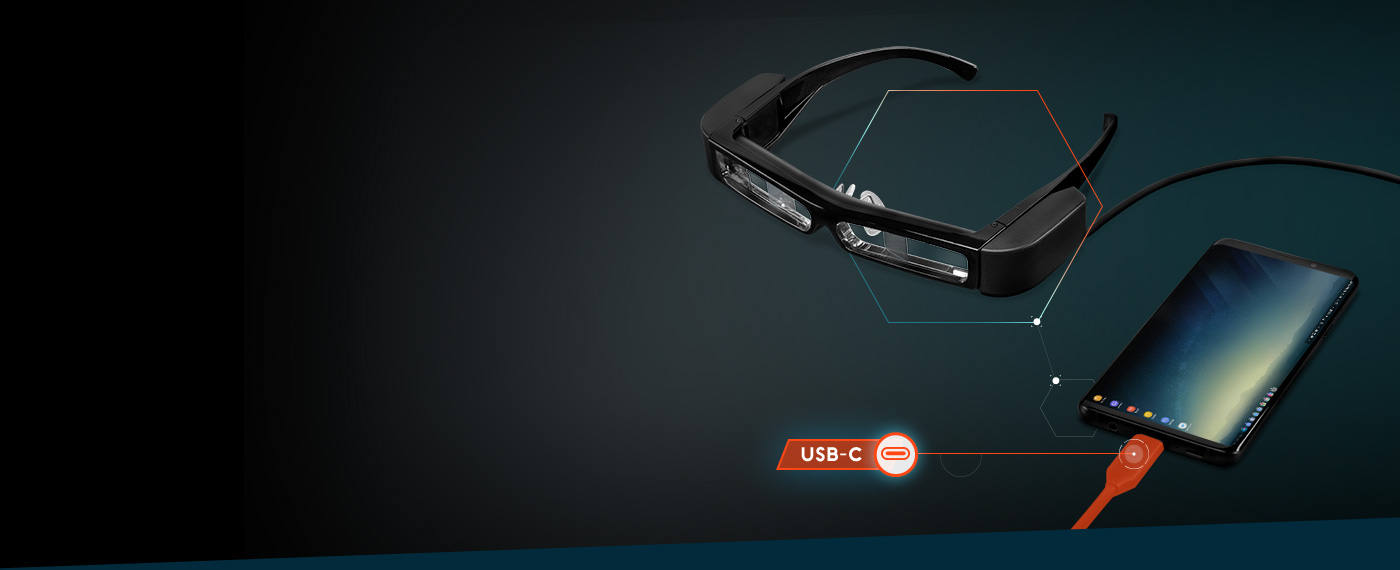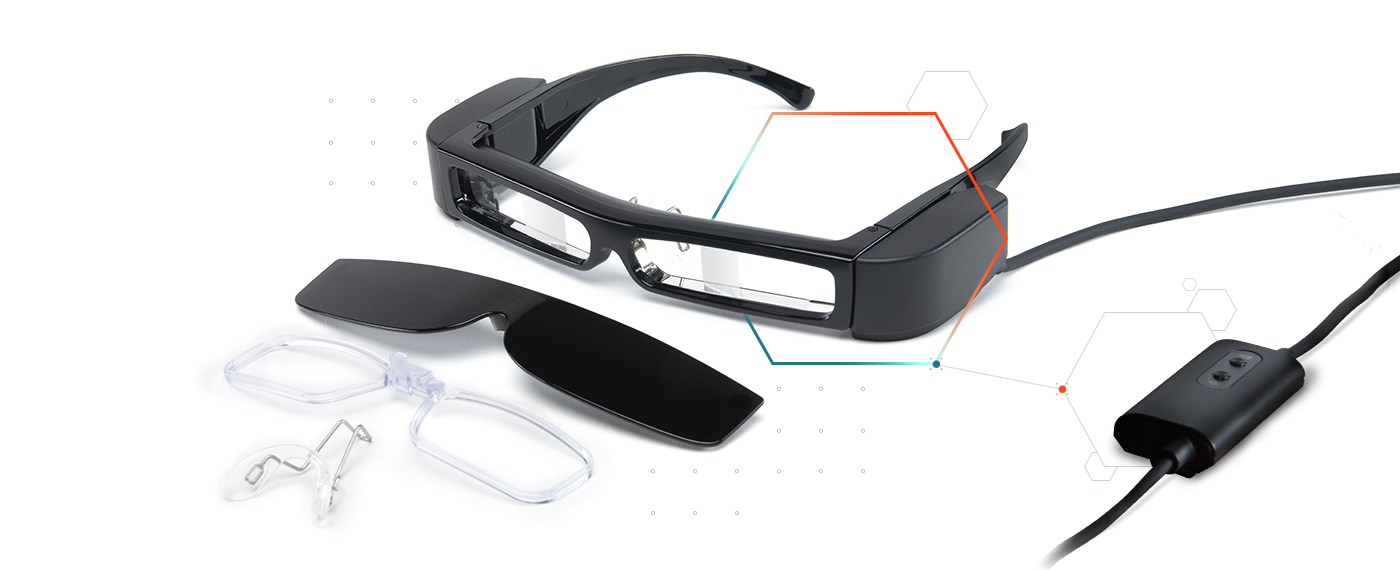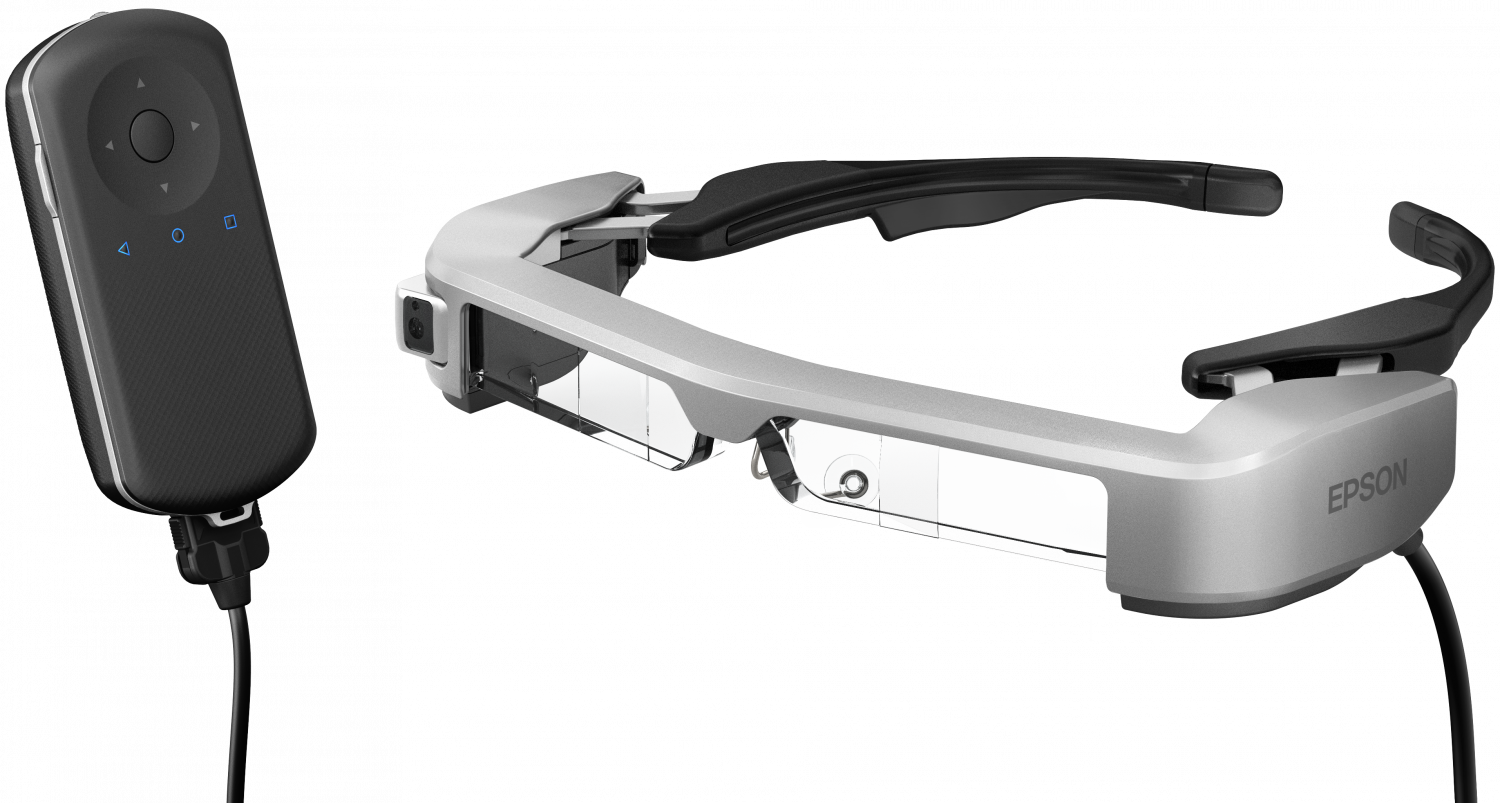Epson Launching New $499 Smart Glasses Powered By Your Phone
Epson has a new pair of augmented reality glasses that can plug into users’ phones. The smart glasses, the Moverio VT-30C, are a new version of Epson’s Moverio series and cost $499. The glasses are not designed for everyday wear; they don’t look that good but they are likely to appeal to the enterprise users and even some everyday users given the affordable pricing and great specs.

Smart glasses have been a mixed bag and various major tech players have been fiddling with multiple designs and specifications in order to come up with the ultimate AR smart glasses that will take augmented reality and mixed reality uses to the next frontier and to mainstream users. The dream is to have light, compact and aesthetically pleasing smart glasses that users will be able to wear around. They shouldn’t be too heavy and too bulked up with the hardware that they become creepy. Previous attempts haven’t been too promising. The Google smart glasses led to the glassholes and we ended up with nice glasses without any particular use-case.
However, when it comes to augmented reality hardware, smart glasses hold the most promise. Unlike other AR hardware such as the Microsoft HoloLens, smart glasses represent a piece of AR hardware that can actually be popular and be put into various legitimate use-cases such as training, entertainment, maintenance and productivity among many others. You can’t walk around with a massive head-mounted device strapped to your face without attracting curious or wary stares but it is actually possible to walk around with a smart glass, especially if it is “smart” and small enough that it looks like ordinary prescription glasses. Epson’s Moverio BT-30C certainly don’t. They look like you are wearing a computer on your face; the design isn’t particularly Ray-Ban-esque.
The new Moverio BT-30C smart glasses can connect to an Android smartphone or to a Windows PC via a USB-C. This is different from the previous versions of the Epson Moverio product which connect to a custom Android controller box. The new Moverio smart glasses will cost $499 and begin shipping in June this year.

The Moverio augmented reality brand has been around for quite some time. The first hardware, its BT-100 smart glasses were launched in 2011, even before the Microsoft HoloLens and the Google Glass.
Its latest iteration, the BT-30C are still bulky by eyewear standards and they still weigh a relatively heavy 95 grams.
Also, the new smart glasses are not technically sophisticated like the Magic Leap One or the Microsoft HoloLens smart glasses that are capable of projecting hyper-realistic images onto the user’s view of the real world. Rather, the new Moverio glasses will essentially create screens in mid-air and enable the user to control them using their phones.
The specs of the Moverio-30C aren’t much different from those of the Moverio BT-300. Both smart glasses are built with the Epson’s 300-series display platform which is an OLED-based projection system that works by beaming images directly on the top of the user’s line-of-sight of the real world. The new BT-30C isn’t built with a camera but instead utilizes dual-axis motion sensors.
Performance-wise, they do the job incredibly well in spite of the chunky build and the weight. The images are sharp and bright although the experience still comes with the field-of-view restrictions that you’d find in the other augmented reality headsets. The new Moverio BT-30C smart glasses have a 23-degree field-of-view which is relatively small, even by many medium scale smart glasses standards. However, unlike the older Epson smart glasses, the new Moverio glasses offer a better fit for users with smaller heads. The old glasses would simply slip off the face if you had a smaller head.
You can also project more than a single app. With the Moverio BT-30C, you will be able to load up to three apps on three different screens and you can switch to the various apps by simply turning your head.
It’s certainly not a product for the mass market, a reality that even Epson acknowledges. Epson doesn’t think augmented reality will be a mass market niche just yet and is currently not counting on mainstream adoption to drive the sales of its products. Epson, like many AR hardware manufacturers, sells most of its devices to businesses or enterprise users that can use them as standalone computing devices. They find wide uses in the heavy industry applications such as in mining, manufacturing, automotive design, maintenance work among others.

Gradually, smart glasses are also gaining acceptance among broader audiences beyond the narrow enterprise uses. They are very popular with drone enthusiasts and other hobbyists. Many museums and cinema theaters are also using smart glasses, especially the Epson Moverio glasses for projecting various kinds of digital content. Even if the glasses are not being used personally like smartphones, you are still likely to encounter them in various institutions that use them such as museums, theaters, theme parks or workplaces.
With the BT-30C, Epson will be getting its foot in the door of the consumer markets which are expected to explode in the coming years as many of the tech giants see augmented reality as the future of computing. Epson is not just pitching to enterprise users but also to end users looking for a portable private screen that can on a familiar PC or smartphone.
Epson is also providing this device at a consumer-friendly price of $499 which is more than that of the BT-300 which costs $699. It’s not a product for the consumer market but given the price and the specs, it is likely to appeal to the average user who is simply looking for a smart glass for personal use.
https://virtualrealitytimes.com/2019/05/08/epson-launching-new-499-smart-glasses-powered-by-your-phone/https://virtualrealitytimes.com/wp-content/uploads/2019/05/Moverio-BT-30C-USB-C-Smart-Glasses-by-Epson-US-600x357.pnghttps://virtualrealitytimes.com/wp-content/uploads/2019/05/Moverio-BT-30C-USB-C-Smart-Glasses-by-Epson-US-150x90.pngAR HeadsetsAugmented RealityHardwareTechnologyEpson has a new pair of augmented reality glasses that can plug into users' phones. The smart glasses, the Moverio VT-30C, are a new version of Epson’s Moverio series and cost $499. The glasses are not designed for everyday wear; they don’t look that good but they are likely...Sam OchanjiSam Ochanji[email protected]EditorVirtual Reality Times - Metaverse & VR

